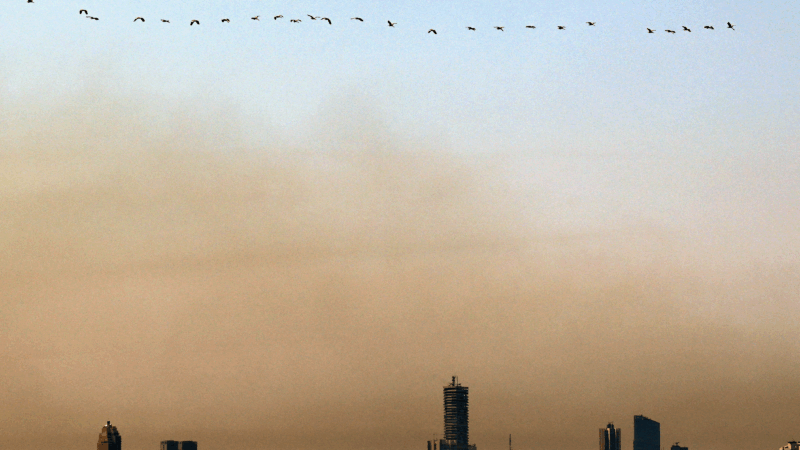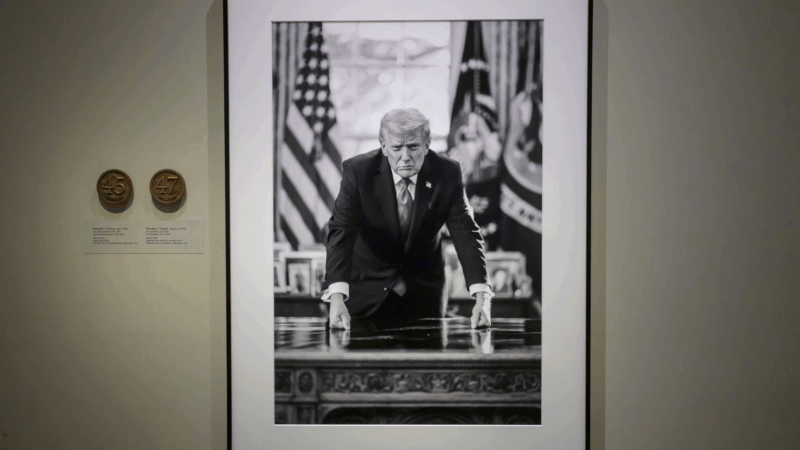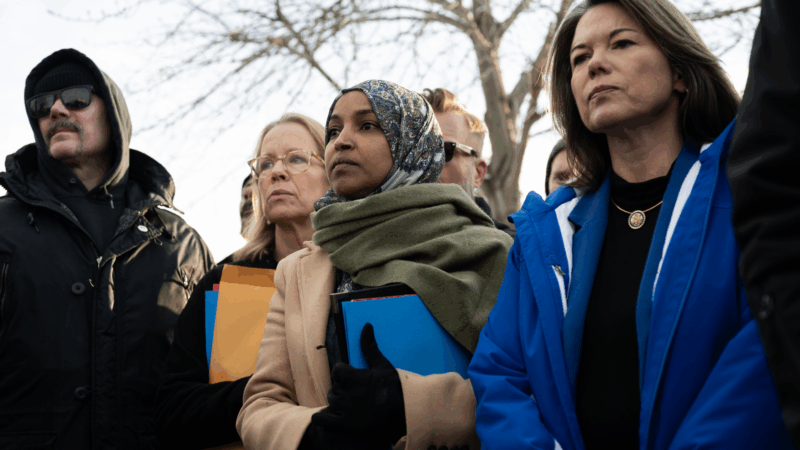This nation has the fastest rising rate of cancer cases — and deaths — in the world
Ali Mokdad stands in the heart of Beirut. Cars and trucks and motorcycles rumble everywhere.
“If you look at a car passing by, you see smoke coming out of it — that’s illegal in Lebanon. But nobody enforce[s] it,” says Mokda, the chief strategy officer of population health at the University of Washington.
As a result, Beirut has terrible air quality and is often submerged under a blanket of exhaust. And it’s not just in the big cities — vehicles belch pollution across the country.
It’s one reason that cancer is surging in Lebanon. Mokdad co-authored a global survey that revealed that the tiny nation on the Mediterranean is experiencing the fastest increase in cancer incidence and mortality anywhere in the world. According to the study, published in The Lancet, the frequency of new cancer cases in Lebanon has increased by an astounding 162% from 1990 to 2023, with cancer-related deaths increasing by 80% over that same period. In 2023, for every 100,000 people in the country, there were 233.5 new cancer cases.
The news is sobering elsewhere too. The survey predicts that cancer cases and cancer deaths will continue to rise worldwide through at least 2050, especially in low- and middle-income countries.
Still, Lebanon has reason to be especially alarmed.
What’s behind the dramatic rise in cancer in Lebanon
Mokdad grew up in Lebanon before moving abroad almost 40 years ago. For him, like many here, the disease is personal.
“I’m losing cousins,” he says. “I’m scared. I’m losing them at a very young age. It’s not only death. It’s also diseases. They have so many health problems.”

There are various reasons why cancer is surging in Lebanon. A big one is air pollution from both vehicles and diesel-fueled generators that many homes and businesses use due to unreliable state electricity.
In addition, “we overuse chemicals for our agriculture,” says Mokdad. Some of these compounds along with sewage ends up in certain rivers. “People don’t drink it but they wash their tabbouleh and their fattoush with it. They’re consuming this.”
By far the biggest risk factor, however, is smoking.
“There is no more taboo about smoking,” Mokdad says. “Everybody smokes. Kids smoke in front of their parents. Yesterday, I went with some of my friends for dinner. You come home, you stink of tobacco.”
It’s gotten to the point where Mokdad keeps a set of clothes in Lebanon that he only wears there.
There are no public health campaigns warning against the dangers of smoking or secondhand smoke. Instead, Mokdad says the government is actually in the business of buying and selling tobacco.
The inevitable result is that lung cancer rates have jumped nationwide. In addition, leukemia and pancreatic and liver cancers have risen. The increases in prostate, colon and breast cancers are all preventable through early screening and detection.
The issue, says Mokdad, is that although screening is available, most people don’t know to seek it out. “Health education is a problem,” he explains. “If you caught [cancer] earlier,” people wouldn’t have to die.
The global survey on cancer and Lebanon’s troubling trends with the disease caught the attention of members of the Lebanese parliament. It’s why they invited Mokdad to come talk to lawmakers and experts about his findings.
Change will be a journey, a slow one at that
Earlier this month, Mokdad traveled to Beirut for the meeting, which was held inside one of the Parliament buildings. After walking through the results of the study and describing the peril that cancer poses, Mokdad suggested to the officials that Lebanon could improve its health screening, ban smoking in public spaces and launch a set of aggressive anti-tobacco ads. By way of example, he pointed to a public health campaign launched by the Centers for Disease Control and Prevention in the U.S. a decade ago, one that the CDC and other researchers say prevented 129,100 early deaths between 2012 and 2018.

Inaya Ezzeddine is a member of parliament and a physician who ran the proceedings. She explains that any kind of government response will take time. “It’s a journey,” she says. “It’s not something that we can implement overnight because it has to do with a lot of sectors. We have to work hard toward this political will.”
A committee will be formed to examine the data and determine which laws will need enacting or strengthening to address the problem.
One of the attendees, Iman Nuwayhid, a professor of public health at the American University of Beirut, believes that individuals should take responsibility too. “We’re accountable to making our country cleaner, reduce pollution, improve the environment,” he says. “Of course, the government plays a bigger role, but we have a big responsibility. Local communities again should push in that direction.”
Mokdad argues that the time is now for the government to act and support people in making the right decisions about their health.
“I know Lebanese have to deal with a lot of things,” he says. “But cancer is killing. Many people in the parliament said, ‘I’m not surprised with this finding.’ And my question: What are you doing about it? Why have you been waiting so long to take action?”
A couple blocks from the building where the meeting was held, a mother and son are seated outside, taking a break from work. The mom, 57-year-old, Najah Mourda, is smoking.

She says she’s recently lost several loved ones to cancer — her mother, her sister and a close friend. “It’s very dangerous and I’m afraid of it,” she says.
Mourda is hopeful that the government will do something, even while acknowledging that she shouldn’t be smoking. She knows it’s bad for her. She’s tried to stop but hasn’t been able to kick the habit.
Her son, Marwan Bizri, looks on. “Lebanese people are dying because of cancer,” he says. “We’re losing people we love.”
The 2026 Golden Globe awards are Sunday. Here’s how to watch
The 2026 Golden Globes air on Sunday night starting at 8 p.m. ET / 5 p.m. PT.
National Portrait Gallery removes impeachment references next to Trump photo
A new portrait of President Trump is on display at the National Portrait Gallery's "America's Presidents" exhibition. Text accompanying the portrait removes references to Trump's impeachments.
America’s top figure skaters dazzled St. Louis. I left with a new love for the sport.
The U.S. Figure Skating National Championships brought the who's who of the sport to St. Louis. St. Louis Public Radio Visuals Editor Brian Munoz left a new fan of the Olympic sport.
DHS restricts congressional visits to ICE facilities in Minneapolis with new policy
A memo from Homeland Security Secretary Kristi Noem, obtained by NPR, instructs her staff that visits should be requested at least seven days in advance.
Historic upset in English soccer’s FA Cup as Macclesfield beat holders Crystal Palace
The result marks the first time in 117 years that a side from outside the major national leagues has eliminated the reigning FA Cup holders.
Venezuela’s exiles in Chile caught between hope and uncertainty
Initial joy among Venezuela's diaspora in Chile has given way to caution, as questions grow over what Maduro's capture means for the country — and for those who fled it.







